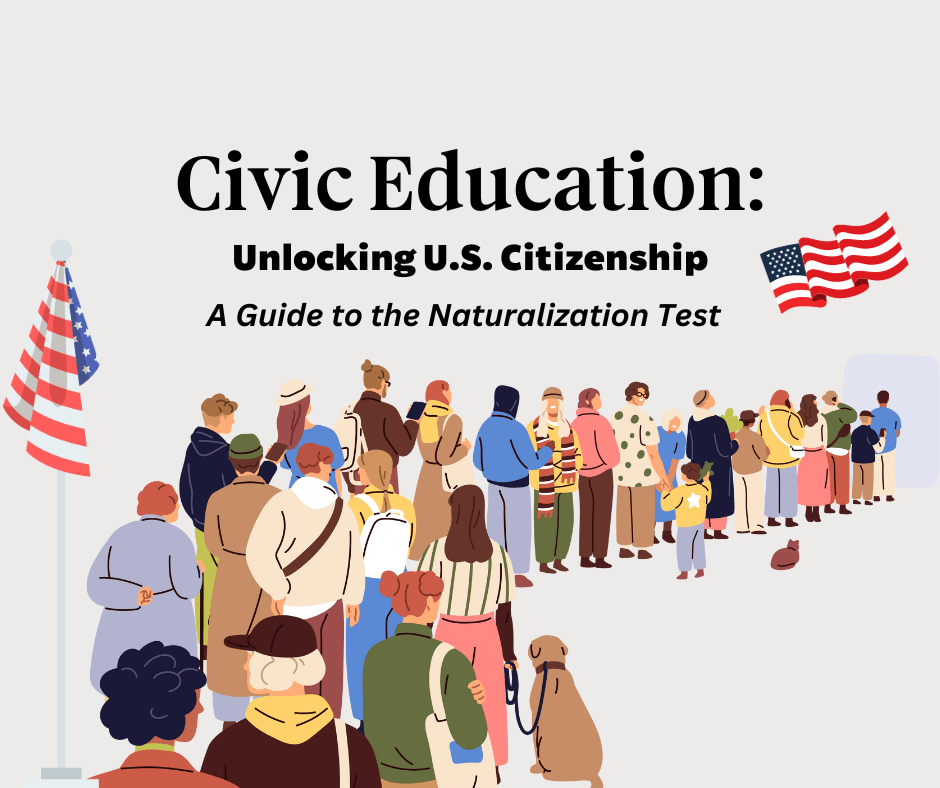
Unlocking U.S. Citizenship: A Guide to the Naturalization Test
Is the naturalization process fair?
Over the last decade, over 7.6 million people obtained U.S. citizenship through naturalization. There was a 20% increase from 2021 to 2022, marking the highest amount of naturalizations since 2008.
However, many still hesitate to pursue citizenship due to nerves around the test and interview. If you're feeling unsure about the process, don't worry––about 96 percent of applicants pass the test.
This guide will help you know what to expect and prepare for the U.S. citizenship test with confidence.
About naturalization
- To become a U.S. citizen, you need to pass a two-part test. The first part checks your English skills (reading, writing, speaking), and the second part tests your knowledge of U.S. history and government.
- Mexico, India, the Philippines, Cuba, and the Dominican Republic are the leading countries of birth for naturalized citizens, and the top five cities where naturalized citizens live are Miami, Houston, Brooklyn, the Bronx, and Los Angeles.
- U.S. officials plan to update the citizenship test in late 2024, proposing an additional speaking section where an officer shows pictures of everyday things, like daily activities, weather, or food, and asks the applicant to describe them.
Eligibility
- You need to be a permanent resident for at least five years to apply for citizenship, at least 18 years old and have not been outside the U.S. for extended periods (6 months or more) during the waiting period.
- To pass the naturalization test and become a U.S. citizen, you must demonstrate proficiency in English (speaking, reading, and writing everyday words), know about U.S. history and government, have a clean legal record, and demonstrate good moral character. As part of the process, you must also pledge an Oath of Allegiance to the United States as part of the ceremony.
What to expect
- To become a U.S. citizen, start by filling out Form N-400. After applying and providing your biometrics, United States Citizenship and Immigration Services (USCIS) will schedule an interview and send you the appointment details. The citizenship process takes about 10 months on average.
- In the current test, the officer asks personal questions that the applicant has already written in their paperwork. The applicant must also correctly answer six out of 10 civics questions, which come from a pool of 100 civics questions and include questions like, "What does the Constitution do?" and "What is one right or freedom from the First Amendment?" or "Who vetoes bills?"
- You can retake the test if you don't pass it, but the questions will differ. USCIS will set up a new test for you, usually about 2 to 3 months after your first attempt.
Click here for a bunch of free study tools from USCIS to make getting ready for the English part of the citizenship test easy and enjoyable.
Have you or someone you know pursued U.S. citizenship through naturalization?